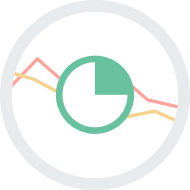Sugar can be used as a flavour enhancer and a sweetener, as well as a filler and preservative. It is therefore easy to see why the food industry likes to add sugar to a wide variety of foodstuffs. As a consequence of this practice, many products contain hidden sugar and people often inadvertently consume too much of it.
Sugar is naturally present in fruit, sweetcorn, sugar beet, sugar cane and potatoes, amongst other things.
Often the sugars that are added to products are listed under different names on the label, which can sometimes make them difficult to identify.
Examples of (added) sugars include maltose, dextrose, fructose, lactose, sucrose, galactose, glucose-fructose syrup, honey and agave syrup.
Drinks that are high in (added) sugars include soft drinks, fruit juices and ice tea. You should try to limit your consumption of these drinks as much as possible. They are high in calories, but provide no or few healthy nutrients.
In addition, these drinks lead to rapid changes in blood sugar levels.
Also be wary of consuming sugar-free products, as these contain substitute sweeteners, such as aspartame. These can also lead you to develop a taste for sugar.
Sugar and your health
There are a number of health effects associated with a high sugar intake.

A high sugar intake increases the risk of a stroke
Consuming lots of sugar is associated with a higher risk of having a stroke.
A high sugar intake may cause your blood pressure to rise. This is a significant risk factor for a stroke. You should therefore pay attention to your sugar intake.
High-sugar (soft) drinks are a culprit that is easily overlooked. Fruit juices also often contain added sugars. Although sugars are not added to pure fruit juice, this naturally already contains high levels of sugar. Also be aware that ready-made foods are high in added sugar.

A high sugar intake increases the risk of cardiovascular diseases
Consuming a lot of sugar is associated with a higher risk of developing cardiovascular diseases. A diet that includes lots of sugar can lead to you becoming overweight and increase your risk of developing type 2 diabetes. These are significant risk factors for cardiovascular diseases. You should therefore pay attention to your sugar intake.
High-sugar (soft) drinks are a culprit that is easily overlooked.
Fruit juices also often contain added sugars. Although sugars are not added to pure fruit juice, this naturally already contains high levels of sugar.
Also be aware that ready-made foods are high in added sugar.

A high sugar intake increases the risk of type 2 diabetes
Consuming a lot of sugar is a significant risk factor for type 2 diabetes.
In addition, a high sugar intake increases the risk of you becoming overweight, which is also a risk factor for type 2 diabetes. You should therefore pay attention to your sugar intake.
High-sugar (soft) drinks are a culprit that is easily overlooked. Fruit juices also often contain added sugars. Although sugars are not added to pure fruit juice, this naturally already contains high levels of sugar. Studies have shown that consuming a 330 ml high-sugar drink every day increases the risk of developing diabetes by 20%.
Also be aware that ready-made foods are high in added sugar.
iGene Passport
iGene offers you an insight into your personal risks of developing conditions and tells you whether cutting down your sugar intake may be particularly important for you to help prevent certain conditions. In addition, an iGene Passport provides you with information on what else you can do to reduce any risks. Here we focus on behaviour that will help you maximise the benefits to your health. In the publication below you can read more about what iGene can do for you.